Profile
Kevin Baker
Great questions, everyone!
Work History
-
Education:
Michigan State University (2009-2015), Michigan State University (2015-current)
-
Qualifications:
B.S. in Microbiology and Japanese, B.S. in Genomics and Molecular Genetics
-
Work History:
Several laboratories on campus ranging from Honeybees to Vibrio cholera.
-
Current Job:
Graduate Research Assistant
-
Employer:
Luyendyk Laboratory at Michigan State University
-
My Work:
I study how your blood works to form clots (which eventually form scabs) when you get hurt (like falling off a bike).
-
Read more
When your balloon gets a hole in it, you need to cover the hole to prevent more air from escaping. Your body is like a balloon, something caused it to get a hole and your body needs to seal the hole so blood does not get out. Once the hole gets sealed, a scab forms. This scab is like a shield, it is protecting your body so that your skin can heal. I specifically study the first steps of scab formation called blood coagulation (as known as blood clotting). Every time you get cut, it is your body’s job to seal the hole and repair it.
In your blood, you have something called platelets. In response to a cut, these platelets group together in order to form a shield. When the platelets group together, the shield seals the cut. How the platelets group together involves a pathway called the clotting cascade. I study this cascade.
The clotting cascade is as simple as building a tiny house! But what do you need to build a house? Wood, a saw to cut lumber, and friends to help. The first step to clotting is like you telling all your friends, “Hey! Help me out!” Once all of your friends get there, you start gathering the supplies. First you cut the wood with your saw. Then you stick all the pieces of wood together and you have your house.
In your body, your body asks “Hey, Help me out!” when something called ’tissue factor’ binds to factor 7. Tissue factor and factor 7 gather all of their friends to help: factor 2, factor 5, factor 8, factor 9, factor 10, factor 11, and factor 12. It is easy to remember this friend group because they all have the same name, “factor” followed by a number! In fact, there are 13 friends named factor that help to form a scab.
So now that all the friends are there, you need to cut wood for the house. You are cutting something called fibrinogen and you are cutting it into fibrin pieces. Fibrinogen is like the tree and the fibrin are the pieces of wood. Once you have your pieces of wood, you stick the fibrin onto the platelets and you have your clot.
-
My Typical Day:
I add chemicals onto liver cells and see how it effects blood clotting.
-
Read more
My background is in microbiology and bacterial genetics, but I now work in a liver toxicology laboratory. Before this, I had never worked with any non-bacterial cells. I primarily study the cells in your liver (called hepatocytes) in addition to how your blood clots to stop you from bleeding. Coagulation factors that help your blood clot come from your liver, so it is a good place to study clotting! Every day is incredibly different, but I mostly add certain chemicals to the liver cells and see how it causes clotting. I also read a lot of scientific journals, talk to colleagues about experiments, and plan experiments.
-
What I'd do with the prize money:
I would like to give the money back to I’m a Scientist USA.
-
Read more
Since I entered graduate school, I have been looking for opportunities to talk science with non-scientists. However, opportunities are few and far between. I have always been interested into talking to people, but I have never been able to find the right outlet for scientific discussion. I would like the money to go back to I’m a Scientist USA because I feel a group like this is incredible important to have. It connects passionate scientists with interested people.
-
My Interview
-
How would you describe yourself in 3 words?
Tall, Bearded, Friendly
What's the best thing you've done in your career?
Meeting so many amazing individuals with such a wide variety of interests. It has made every day a learning experience for me.
What or who inspired you to follow your career?
My professors in college, I originally had no intention on being a scientist, but I had one great experience in a course that lead me to be what I am today.
What was your favorite subject at school?
Lunch. But also math.
What did you want to be after you left school?
I wanted to go to school to become a math teacher.
Were you ever in trouble at school?
I was a rebellious youth in 5th grade. However, I am happy to say that I am no longer a trouble maker!
If you weren't doing this job, what would you choose instead?
Realistically I would be an English teacher in Japan, but ideally I would be a Pokemon Master.
Who is your favorite singer or band?
Of Monsters and Men
What's your favorite food?
Seafood, Italian food, Japanese food, Chinese food, Thai food… I love food.
What is the most fun thing you've done?
My family and I traveled to 48 states during an entire summer once.
If you had 3 wishes for yourself what would they be? - be honest!
1. The ability to fly 2. For more pets (I have 2 cats and a rabbit already) 3. Honestly, for more wishes.
Tell us a joke.
A termite walks into a bar and asks, “Is the bar tender here?”
-

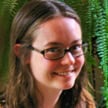
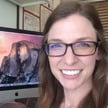
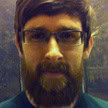
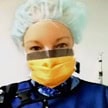
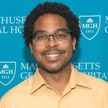
My Comments
Can kisses spread diseases?????? (2 comments)
can horses blod clots (1 comments)
Who do you think would get the 500 dollors? (1 comments)
Whats the real color of the blood (1 comments)
What are you hoping to acheive with your research? (1 comments)